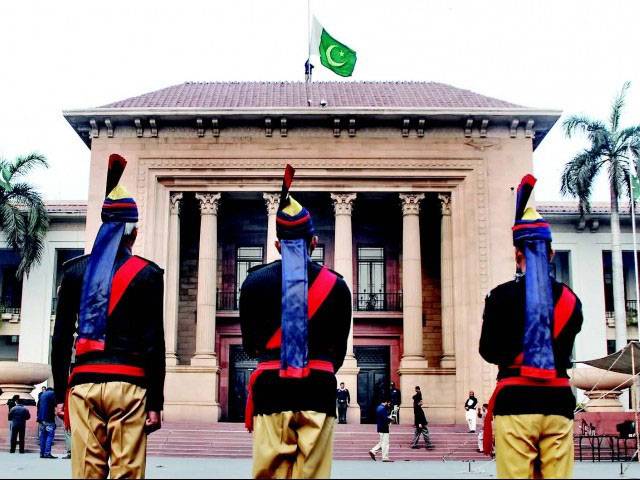Official funding to seminaries to continue, PA told

LAHORE - Punjab Assembly has officially been communicated that the present policy pertaining to extending financial support to the registered religious seminaries in the province will continue in the future. This statement was made by Punjab Minister for Zakat & Ushar, Mr Nadeem Kamran, on Tuesday while replying to a question. He elucidated the fact that actual disbursement of the funds requires a prior clearance from provincial Home department which the government duly seeks.
Nabila Hakim Ali of PTI who hails from Sahiwal had sought details of Zakat funds distributed in her district during the years, 2011-12 and 2012-13. In the written answer provided to the members, one of the heads shown in respect of Zakat distribution was about Deeni Madaris (Religious schools) whichreceived over Rs 4.5 million during the period from the Zakat funds in Sahiwal district alone.
The continued government funding to the Madrassas was a cause of concern to Ms Nabila Hakim since Pakistan government policy is clear when it comes to curtailing any activities that harbor extremism.
The minister, though acquiescent to the government position on extremism , confirmed that there was no shift or change in present policy of funding seminaries through the exchequer. He said that only the registered Madrassas were getting official funding after clearance from the Home Department.
According to the official data compiled by the Interior Ministry, there are at least 22,052 registered religious schools in Pakistan out of which 14,954 exist in Punjab. The break-up shows that there are 4,264 registered religious schools in Sindh, 1,400 in KPK and 1,247 in Balochistan.
Although no authentic record of the unregistered seminaries but their number may run into thousands. This is despite the existence a legal mechanism whereby all religious schools should be registered under the provisions of Madrisa Registration; Societies Registration (Second Amendment) Ordinance 2005.
The House was also notified about other heads, which received Zakat money during the period in question, which included health care, marriage grants, educational scholarships, Eid grants, allowance for the blind persons and administrative expenditures.
It is significant to note here that the PTI lawmaker had to wait for almost two years to get the answers to her questions regarding distribution of Zakat funds in her home town.
Nabeela had submitted her question on September 20, 2013 in the Assembly Secretariat, which in turn, took over two months to dispatch the same to the concerned department on December 21, 2013.
Zakat & Usher department replied back after one year and two months on February 25, 2015. It was finally taken up by the Assembly on September 1, 2015 (Yesterday), six months after its landing in the Assembly secretariat. It was an ordeal spanning over two years which speaks volumes about the importance the government departments attach to the elected House of over 60 million people.
When Ms Nousheen Hamid of PTI raised a question about the criteria regarding distribution of Zakat funds among the various districts, the minister told the House that it was set according to the population. Ms Nosheen, on the other hand,advocated that ratio of poverty in a district should be the sole criteria for allocation of Zakat funds.
It was a private members day in Punjab Assembly on Tuesday. Seven resolutions of public interest were on the agenda but none of them was adopted mainly due to the opposition from the Law Minister Rana Sana Ullah who represents government in Punjab Assembly.
On one resolution, the minister virtually dogged? the mover by telling him that Punjab government was already purchasing medicines with their generic names. Mover, Tariq Mehmood Bajwa did not press his point believing his concern has been addressed.
Nevertheless Mr Bajwa wanted the Assembly to adopt a resolution to make it binding on the pharmaceutical companies to prepare and market their medicines with their generic names. If approved, the resolution would have been beneficial to the public at large as it was not restricted to official purchase of medicines.
Opposition leader Mehmoodur Rashid, though out of turn pleaded to move a resolution against the recent surge in gas tariff. Nonetheless the chair told him that a seven-day notice was a must for such a purpose. Law minister also opposed the move stating it as a federal matter. Subsequently, he was asked to sit with the law minister to draft a consensus resolution, which may be tabled in the House on Wednesday (today).





